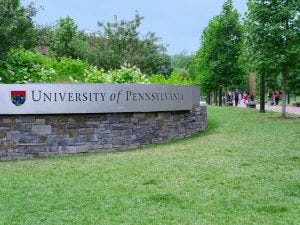May 27, 2021

University of Pennsylvania gene therapy researchers have leased space at Discovery Labs’ facility in King of Prussia in a deal designed to expand vector production capacity.
The agreement – financial terms of which have not been disclosed – includes two dedicated floors at Discovery Labs’ campus on Swedeland Road.
The leased space will house the Penn Vector Core, which is a full-service viral vector manufacturing operation.

Image: iStock/peterspiro
At present Penn produces viral vectors for use in gene transfer. It supplies vectors – including widely used types such as AAV 1, 7, 8, 9, and rh10 – for internal programs and external gene therapy developers as a third party manufacturer.
According to a University statement the new space will support discovery research all the way through submission of Investigational New Drug (IND) applications for clinical trials.
The leased space will also provide capacity for non-clinical proof-of-concept research, large-scale vector production activities; expanded high-throughput research manufacturing for pre-clinical projects; platform development and process optimization the University said.
In time, the University team intends to add capabilities for assay development and qualification, quality control testing, and technical transfer.
James Wilson, who heads the Penn team, said, “The past few years have been a pivotal time in the development of gene therapies, and our new space at Discovery Labs will propel us even further in charting the future of the field.”
“With additional state-of-the-art equipment and increased operational capabilities, we are well-positioned to enhance the design and execution of our innovative, transformative therapies.”
As well as Discovery Labs, the campus also plays host to GSK, WuXi Biologics and The Center for Breakthrough Medicines, a cell and gene therapy focused contract development and manufacturing organization.
The signing of the lease comes a few months after Penn established the G2 Bio Companies.
The companies – which were launched in partnership with Singapore-based investment group Temasek – are tasked with funding and developing gene therapy candidates from the University Gene Therapy Program.
About the Author
You May Also Like




